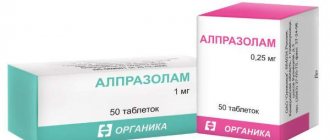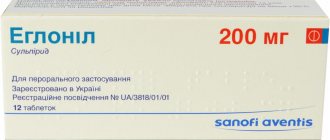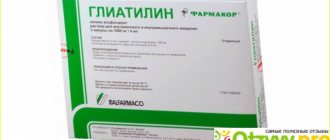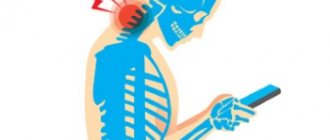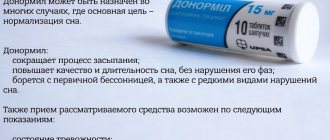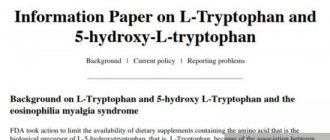pharmachologic effect
Betahistine is a histamine created synthetically. Basically, the active substance of the drug is capable of engaging histamine H-1 and H-3 receptors (weak and strong antagonists) of the central nervous system. In this case we are referring to the receptors of the inner ear and vestibular nuclei.
Betahistine dihydrochloride affects blood flow, stimulating microcirculation and permeability of the capillaries of the inner ear. In addition, the active ingredient of this drug stabilizes the endolymph pressure in the cochlea and labyrinth.
Due to the fact that Betahistine is essentially an inhibitor of H-3 receptors in the nuclei of the vestibular apparatus, this drug has a pronounced effect on the central nervous system, stabilizing neuronal transmission in the neurons of the vestibular nucleus.
Betahistine, when taken correctly, can very quickly neutralize the symptoms of vestibular vertigo . The period of exposure to the active substance of this drug ranges from several minutes to 24 hours. Regular use of Betagistine under medical supervision will reduce the frequency and effectiveness of dizziness, reduce noise and ringing in the ears in patients, and also restore hearing if it worsens. The drug does not have a sedative effect and does not cause various coordination disorders. Does not affect the endocrine glands.
Contraindications to taking pills
There is insufficient data to assess the effects of the drug during pregnancy and lactation. In this regard, use during pregnancy is contraindicated. During treatment it is necessary to stop breastfeeding.
In some cases, taking Betahistine is dangerous to health. The attending physician should tell you about all contraindications. Taking pills is prohibited in the following cases:
- If the patient has a severe allergy to the substance betahistine;
- Severe ulcers in the body that occur in an active form;
- Attacks of bronchial asthma;
- Prohibited for children under 12 years of age;
- Dangerous for pregnant women;
- Not to be taken during breastfeeding.
If you violate the rules of administration and take pills in these cases, this will cause dangerous complications and Betahistine will simply harm the body.
Although the drug Betahistine is safe and practically does not cause side effects, doctors still prohibit taking it during pregnancy in any trimester. The substance of the drug can negatively affect the body of the unborn child and cause serious complications.
Experts also strongly recommend refraining from treatment with Betahistine while breastfeeding. Studies have shown that the composition of the drug will enter the baby's body through breast milk and can cause a severe form of allergy. If a woman urgently needs treatment, then she should refuse to feed the baby.
Pharmacodynamics and pharmacokinetics
Betahistine is quickly and completely absorbed after oral administration of the drug in tablets. Peak plasma concentrations of the active substance of the drug are achieved approximately one hour after oral administration on an empty stomach. Subsequently, Betahistine binds to human plasma proteins, but it is worth noting a very low level of binding - less than 5%.
In blood plasma, the maximum concentration of the active substance is reached after approximately 60 minutes. It is excreted from the body as a result of metabolism by metabolization to inactive metabolites - 2-pyridylacetic acid (the main metabolite) and demethylbetagistine .
Almost complete elimination of the drug substances occurs within 24 hours, mainly through the kidneys (approximately 90%), the remaining 10% is excreted through the intestines and liver.
Indications for use of Betagistine
Very often on Internet forums, users ask the question: “What is Betagistin for?”
Indications for the use of Betahistine are as follows: treatment of Meniere's syndrome , as well as symptoms that may include dizziness, tinnitus, partial hearing loss, nausea, and loss of coordination .
Reference: Meniere's syndrome manifests itself in the form of vestibular and auditory disorders that have not previously been observed in humans. May develop as an acute stroke . Has a high probability of subsequent relapse.
Comparison of addiction between Betagistine and Tagista
Like safety, addiction also involves many factors that must be considered when evaluating a drug.
So, the totality of the values of such parameters as “o syndrome” in Betagistin is quite similar to the similar values in Tagista. Withdrawal syndrome is a pathological condition that occurs after the cessation of intake of addictive or dependent substances into the body. And resistance is understood as initial immunity to a drug; in this it differs from addiction, when immunity to a drug develops over a certain period of time. The presence of resistance can only be stated if an attempt has been made to increase the dose of the drug to the maximum possible. At the same time, Betagistine has a fairly low value of the syndrome, just like Tagista.
Side effects
Along with the obvious beneficial effects, taking Betahistine can cause side effects.
Attention: not every patient taking this drug will experience discomfort or experience at least one of the side effects listed below.
Experts warn that side effects when taking any drug are not always interpreted in a negative way. As a rule, in most cases, any reaction may indicate the body's adaptation to a new drug, so before deciding to stop using the drug, you should consult your doctor.
Common side effects from taking Betahistine occur in one in ten patients who take this medicine. The list of the most common side effects includes symptoms such as:
- general poor health;
- stomach upset (occurs when taking the drug before meals, which is strictly contraindicated);
- headache (in this case it is worth taking a painkiller , on the preliminary recommendation of a specialist);
- bloating or discomfort;
- allergic skin reactions , such as hives and rashes (if such reactions occur, you should use an antihistamine or anoint problem areas of the skin with moisturizer).
If these recommendations do not help eliminate side effects, the patient must consult a doctor before taking the next dose of Betahistine.
Comparison of safety of Betagistine and Tagista
The safety of a drug includes many factors.
At the same time, in Betagistin it is quite similar to Tagista. It is important where the drug is metabolized: drugs are excreted from the body either unchanged or in the form of products of their biochemical transformations. Metabolism occurs spontaneously, but most often involves major organs such as the liver, kidneys, lungs, skin, brain and others. When assessing the metabolism of Betagistin, as well as Tagista, we look at which organ is the metabolizing organ and how critical the effect on it is.
The risk-benefit ratio is when the prescription of a drug is undesirable, but justified under certain conditions and circumstances, with the obligatory observance of caution in use. At the same time, Betagistine does not have any risks when used, just like Tagista.
Also, when calculating safety, it is taken into account whether only allergic reactions occur or possible dysfunction of the main organs. In other matters, as well as the reversibility of the consequences of using Betagistine and Tagista.
Instructions for use of Betagistine (Method and dosage)
The medicine Betahistine must be taken strictly in accordance with the instructions.
Dosage for adults
Anti-dizziness tablets must be taken with food or after meals at a dosage of 8 or 16 mg three times a day during the initial stage of treatment with this drug.
Maintenance doses of the drug usually range from 24 to 48 mg per day at the discretion of the attending physician. The daily dose should not exceed 48 mg. The dosage can be adjusted taking into account the individual health characteristics of patients. Sometimes improvement may only be seen after several weeks of treatment.
Treatment of patients with liver, kidney and heart failure
For patients with liver failure, treatment with Betahistine should be prescribed after a thorough study. Treatment of patients with renal and heart failure is also prescribed.
Treatment of elderly patients
In old age, Betahistine should be used with caution, since in this population group there is a high probability of negative reactions from the body to the active and auxiliary substances included in the medicine.
Betahistine, instructions for use for children and adolescents
Betahistine tablets are not recommended for use in children and adolescents under the age of 18 due to the lack of data on the safety and effectiveness of the drug.
Release forms
The following forms of medication are available:
- Tablets 8 mg, white or white-yellow, round, flat surface, No. 5, 7, 10, 12, 14, 30, 100, 500 (for hospitals), 1000 (for hospitals), 2000 (for hospitals).
- Tablets 16 mg, white or white-yellow, round, flat surface, No. 5, 7, 10, 12, 14, 15, 30, 100, 500 (for hospitals), 1000 (for hospitals), 2000 (for hospitals) .
- Tablets 24 mg, white or white-yellow, round, flat surface, No. 5, 7, 10, 12, 14, 20, 100, 500 (for hospitals), 1000 (for hospitals), 2000 (for hospitals).
Available in a cardboard pack (blisters) or in a jar (plastic or dark glass).
Betaserc may contain 8, 16 or 24 mg of betahistine dihydrochloride. Additional substances: citric acid monohydrate, mannitol, microcrystalline cellulose, talc, colloidal silicon dioxide.
White, flat, round tablets with beveled edges, engraved on one side with the number “256” (for the 8 mg release form), “289” (for the 24 mg release form) or “267” (for the 16 mg release form). 10/15/20/25/30 tablets of 8/16/24 mg in a blister.
Overdose
General information on cases of overdose with Betahistine has not been reported. It is known that some patients experienced mild to moderate symptoms such as headache, nausea, drowsiness and abdominal pain when taking the drug at a dose of up to 640 mg.
Other symptoms of overdose: vomiting , dyspepsia , ataxia and convulsions .
More serious complications: seizures, pulmonary or cardiovascular complications have been observed in cases of intentional overdose of the drug, especially in combination with other drugs. There is no specific antidote, so in case of overdose with this medicine, gastric lavage is recommended within one hour after administration.
Comparison of the effectiveness of Betagistine and Tagista
The effectiveness of Betagistine is quite similar to Tagista - this means that the ability of the drug substance to provide the maximum possible effect is similar.
For example, if the therapeutic effect of Betagistine is more pronounced, then using Tagista, even in large doses, will not achieve this effect.
Also, the speed of therapy is an indicator of the speed of therapeutic action; Betagistine and Tagista are approximately the same. And bioavailability, that is, the amount of a drug reaching its site of action in the body, is similar. The higher the bioavailability, the less it will be lost during absorption and use by the body.
Betagistine's analogs
Level 4 ATX code matches:
Betagis
Stugeron
Betaserk
Betaver
Westinorm
Westicap
Tagista
Vestibo
Cinnarizine
Analogues of Betagistine, similar in composition and effective effect on the body:
- Alfaserk is an antihistamine in the form of tablets or drops;
- Asniton is a drug in tablet form;
- Betaver is a drug in tablet form.
- Betagistin-Nanolek;
- Betagistin-SZ;
- Betahistine hydrochloride;
- Betahistine dihydrochloride;
- Betaserc is a drug in tablet form;
- Vestibo is a drug in the form of tablets;
- Vesticap is a drug in tablet form;
- Microzer;
- Tagista is a drug in tablet form.
Characteristics of “Tagists”
This is an analogue of Betagistin, which differs only in the trade name. It is also produced by various domestic pharmaceutical brands and has three main dosages. Due to the identical composition, this drug has the same indications and pharmacokinetic features as the drug of the same name.
Reviews about Betagistine
As is the case with all medications, reviews of Betagistine are not always positive. On specialized forums you can often find reviews about the drug that indicate that the effect is not always stable. Therefore, most people suffering from chronic disorders of the cardiovascular system are forced to resort to taking these pills regularly. But this does not guarantee relief from headaches and dizziness.
However, there are many positive reviews. For example, several women wrote that during the onset of menopause they began to experience wild headaches and attacks of dizziness, which did not allow them to even slightly tilt their heads down, since at these moments they completely lost coordination. After prescribing Betahistine, these symptoms disappeared completely, clarity of mind and lightness appeared throughout the body.
Both positive and negative reviews indicate that this drug requires very careful use - for some disorders it can completely restore health, but for others, on the contrary, it will not have the expected effect, but will only reduce the manifestation of symptoms.
Storage conditions for the drug Betahistine
In a dry place, protected from light, at a temperature not exceeding 25 °C.
Keep out of the reach of children.
It is necessary to keep the drug in a dark place away from direct sunlight. The storage temperature should not be lower than 15 degrees, but not exceeding 25 degrees. It is important that children do not have access to Betagistine. It is forbidden to keep the drug in the refrigerator or on a damp surface. The shelf life of the tablets is no more than 2 years from the date of production. After the expiration date, it is strictly forbidden to take the medicine.
Betagistin price, where to buy
The price of Betagistine hydrochloride may vary and depends on the number of tablets in the package. For example, the price of Betahistine 24 mg No. 30 varies from 80 to 105 rubles, which, by the way, does not affect the demand for this drug. Many consumers believe that such a low cost of the drug is an additional plus to its obvious advantages.
- Online pharmacies in RussiaRussia
- Online pharmacies in UkraineUkraine
- Online pharmacies in KazakhstanKazakhstan
ZdravCity
- Betahistine-vertex tab.
8 mg 30 pcs. Vertex AO 138 rub. order - Betahistine tablets 24 mg 30 pcs. JSC Obolenskoe farm. company
RUB 305 order
- Betahistine tablets 24 mg 20 pcs. PranafarmPranafarm LLC
102 RUR order
- Betahistine tablets 16 mg 30 pcs. JSC Obolenskoe farm. company
RUB 277 order
- Betahistine-akrikhin tablets 24 mg 30 pcs. Abdi Ibrahim Ilyach Sanayi ve Tij. A.Sh.
RUB 168 order
Pharmacy Dialogue
- Betahistine (tab. 16 mg No. 30) Ozon LLC
64 RUR order
- Betagistine (tab. 24 mg No. 20) Rapharma CJSC
RUB 169 order
- Betahistine (tab. 16 mg No. 30) Pranafarm LLC
82 RUR order
- Betahistine tablets 24 mg No. 30 North Star ZAO
105 rub. order
- Betahistine (tab. 24 mg No. 20)Pranafarm LLC
75 rub. order
show more
Pharmacy24
- Betahistine-KV 16 mg N30 tablets PAT "Kiev Vitamin Plant", Kiev, Ukraine
76 UAH. order - Betagistin-Teva 24 mg No. 20 tablets Merkle GmbH, Nimechchina
121 UAH order
- Betagistin-Teva 16 mg No. 30 tablets Merkle GmbH, Nimechchina
109 UAH order
- Betahistine-KV 8 mg N30 tablets PAT "Kiev Vitamin Plant", Kiev, Ukraine
55 UAH order
- Betagistin-KV 24 mg N30 tablets PAT "Kiev Vitamin Plant", Kiev, Ukraine
90 UAH order
PaniPharmacy
- Betahistine - KV table. 24 mg No. 30
92 UAH order
show more
special instructions
The dosage for elderly people with diagnosed arterial hypertension should be selected with extreme caution, since side effects of the drug include tachycardia and increased intracranial pressure. In addition, Betahistine stimulates the release of catecholamines, leading to a sharp increase in blood pressure, which subsequently threatens a hypertensive crisis.
At the Yusupov Hospital, each patient receives an individual approach. It is not always possible to find the cause of a particular disease, especially when it comes to pathology of the nervous system. At the neurology clinic, high-level specialists easily carry out differential diagnosis of various central nervous system disorders. During the treatment process, the patient is consulted by various specialists to provide comprehensive treatment.
Betahistine does not have a sedative effect and does not affect the ability to drive a car or engage in activities that require rapid psychomotor reactions.
- Trental - instructions for use, price, reviews and analogues
- Ibuprofen - use, instructions, indications
- Mustard plasters for children and adults. Can mustard plasters be used for pregnant women and children under one year of age? Are mustard plasters placed at a temperature? Where to put mustard plasters and how long to keep?
- How long does it take to massage the spine?
